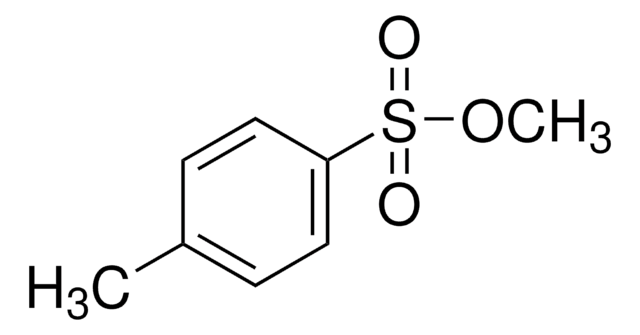추천 제품
형태
solid
Quality Level
분자량
average Mw ~50,000
refractive index
n20/D 1.52
점도
5-7 cSt, 10 % in water(100 °F)
전이 온도
softening point 110-120 °C (Vicat, ASTM D 1525-82)
Tg 69-71 °C
density
1.14 g/mL at 25 °C (lit.)
PDI
3‑4
InChI
1S/C5H9NO/c1-2-5-6-3-4-7-5/h2-4H2,1H3
InChI key
NYEZZYQZRQDLEH-UHFFFAOYSA-N
유사한 제품을 찾으십니까? 방문 제품 비교 안내
애플리케이션
This Poly(2-ethyl-2-oxazoline) polymer is amorphous and water soluble with good temperature stability. Jordan and coworkers showed biocompatibility, no accumulation in tissue, and rapid clearance from the bloodstream. End-group modified poly(2-ethyl-2-oxazoline)s have been conjugated to peptides, and were shown as versatile alternatives to poly(ethylene glycol) (PEG) for both protein and small drug conjugation.
Potential substitute for poly(vinyl alcohol) and poly(vinyl pyrrolidone). Adhesion promoter in coatings. Heat sealing and remoistenable hot-melt adhesive
Potential substitute for poly(vinyl alcohol) and poly(vinyl pyrrolidone). Adhesion promoter in coatings. Heat sealing and remoistenable hot-melt adhesive
특징 및 장점
Nonionic, water-soluble thermoplastic. Better heat stability than poly(vinyl alcohol). Good melt flow, shear stability and Newtonian characteristics. Water is a room temperature Theta solvent.
물리적 형태
N-propionyl substituted linear polyethylenimine
Storage Class Code
11 - Combustible Solids
WGK
WGK 3
Flash Point (°F)
Not applicable
Flash Point (°C)
Not applicable
개인 보호 장비
Eyeshields, Gloves, type N95 (US)
Chau-Hui Wang et al.
Biomacromolecules, 4(6), 1487-1490 (2003-11-11)
A new series of cationic, thermo-sensitive, and biodegradable poly(L-lactide)-poly(2-ethyl-2-oxazoline)-poly(L-lactide) (PLLA-PEOz-PLLA) triblock copolymers were synthesized by ring-opening polymerization. With increasing molecular weight and crystallinity of hydrophobic PLLA blocks, the critical micellization concentrations (CMC) occurred at lower concentration. The PLLA-PEOz-PLLA aqueous solution
Chau-Hui Wang et al.
Journal of controlled release : official journal of the Controlled Release Society, 108(1), 140-149 (2005-09-27)
Polymeric micelles based on poly(L-lactide)-b-poly(2-ethyl-2-oxazoline)-b-poly(L-lactide) (PLLA-PEOz-PLLA) ABA triblock copolymers were designed as intracellular drug carriers. The PLLA-PEOz-PLLA micelles adopt a "flower-like" arrangement with A-blocks at the core and a B-block on the shell under neutral condition. The deformation of the
I C Kwon et al.
Nature, 354(6351), 291-293 (1991-11-28)
New controlled drug-delivery systems are being explored to overcome the disadvantages of conventional dosage forms. For example, stimulated drug-delivery has been used to overcome the tolerance problems that occur with a constant delivery rate, to mimic the physiological pattern of
Yung-Chu Chen et al.
Journal of biomedical materials research. Part A, 100(5), 1279-1292 (2012-03-01)
The multifunctional nanoparticles constructed from triphenylamine-poly(lactide-co-glycolide)-poly(ethyleneglycol)-poly(lactide-co-glycolide) (TPA-PEP) and folate-poly(2-ethyl-2oxazoline)-poly(D,L-lactide) (folate-PEOz-PLA) were developed in this study. Iron oxide nanoparticles (IOP) and paclitaxel (PTX) were coencapsulated in the nanoparticles with diameter less than 200 nm. The drug-loaded nanoparticles emit fluorescence peak at
J H Jeong et al.
Journal of controlled release : official journal of the Controlled Release Society, 73(2-3), 391-399 (2001-08-23)
A series of linear poly(ethylenimine) (L-PEI) containing varying amounts of cationic charge density in its backbone was produced by controlled hydrolysis of poly(2-ethyl-2-oxazoline) (PEtOz) for using as a nonviral DNA transfection agent. The effects of cationic charge density and molecular
문서
The introduction of polymers into the biomedical field has opened new avenues in tissue engineering, implant design, biosensing, and drug delivery.
We present an article that discusses two applications in particular; first, using these layers as polyelectrolyte membranes to control permeability.
자사의 과학자팀은 생명 과학, 재료 과학, 화학 합성, 크로마토그래피, 분석 및 기타 많은 영역을 포함한 모든 과학 분야에 경험이 있습니다..
고객지원팀으로 연락바랍니다.







